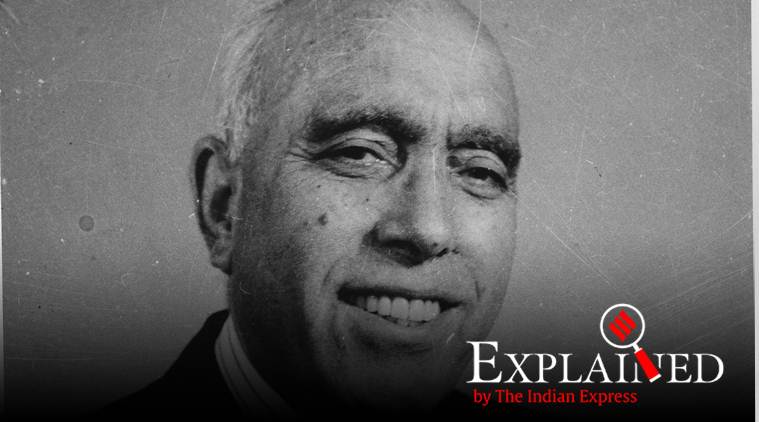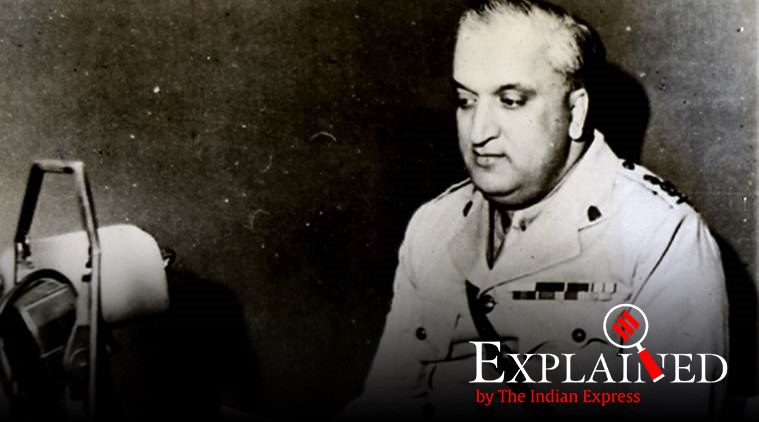int(3)
 Many people see it as a refusal to recognise Kashmir’s popular Muslim leaders who sided with India in 1947, and leaders who continue to identify with India. (Express photo by Shuaib Masoodi)
Many people see it as a refusal to recognise Kashmir’s popular Muslim leaders who sided with India in 1947, and leaders who continue to identify with India. (Express photo by Shuaib Masoodi)
The government in Jammu and Kashmir has cancelled two existing public holidays and introduced a new one. The Muslim majority in Jammu and Kashmir see this as a reflection of the Centre’s assertion, and as a move against their own assertion of their Muslim identity.
The three holidays

The government order has cancelled public holidays on December 5 and July 13. December 5 is commemorated as the birth anniversary of Sheikh Mohd Abdullah, National Conference founder, former J&K Prime Minister, and former Chief Minister.
July 13 is observed as Martyrs’ Day in Jammu and Kashmir. On that date in 1931, 22 Kashmiris were killed outside the Srinagar Central Jail, where they had assembled to protest against autocratic Dogra rulers.
Story continues below this ad
The new holiday is on October 26, the date in 1947 when the former state of Jammu and Kashmir acceded to the Dominion of India. A day later, Indian troops reached Srinagar to drive out tribal raiders. October 27 is observed as a Black Day in Kashmir, marked with a shutdown.
 Sheikh Abdullah, also referred to as the “Lion of Kashmir”, was born on December 5, 1905 in Sohra in Jammu and Kashmir.
Sheikh Abdullah, also referred to as the “Lion of Kashmir”, was born on December 5, 1905 in Sohra in Jammu and Kashmir.
History & significance
In 1846, under the Treaty of Amritsar, the British sold Jammu and Kashmir state to the Dogra king Maharaja Gulab Singh. The Dogras hailed from Jammu and their rule lasted for over a century. In 1931, Muslims of Jammu and Kashmir rose against the autocracy of Dogra rule. The uprising, which led to the killing of 22 Muslims, is seen as the first assertion of Muslim identity in Jammu and Kashmir.
Since the BJP formed a coalition government with the PDP, its leaders and ministers had started to demand a holiday on the birth anniversary of Maharaja Hari Singh, the Dogra king who ruled Kashmir when the 1931 killings took place. The BJP leaders, most of whom hailed from Jammu, also stayed away from government functions organised to commemorate those killed in 1931.
Story continues below this ad
December 5, meanwhile, is significant because of the efforts of Sheikh Mohd Abdullah to integrate Jammu and Kashmir with India. It was Abdullah, a close friend and political ally of Jawaharlal Nehru, who converted the Muslim Conference into the secular National Conference in 1939. Unlike the Muslim Conference, the NC advocated a future with secular India rather than with Pakistan. Once the tallest leader of Kashmir, Abdullah saw his popularity dwindle over the years, but his party continued to advocate Kashmir’s future with India.
 Maharaja Hari Singh
Maharaja Hari Singh
The signals
The move is seen as a departure from the politics of Jammu and Kashmir since 1939. Many people see this as an effort to erase the role of Sheikh Abdullah, and J&K’s Muslim assertion. They see it also as a refusal to recognise Kashmir’s popular Muslim leaders who sided with India in 1947, and leaders who continue to identify with India.
It also raises a question mark over the revival of a political process in Jammu and Kashmir. After the abrogation of Jammu & Kashmir’s special status and division of the state into two Union Territories, the government has cracked down even on mainstream political parties, jailed their leaders and workers including three former Chief Ministers, and stayed away from any political engagement. The move comes when normalcy is yet to return even five months after the abrogation.

 Many people see it as a refusal to recognise Kashmir’s popular Muslim leaders who sided with India in 1947, and leaders who continue to identify with India. (Express photo by Shuaib Masoodi)
Many people see it as a refusal to recognise Kashmir’s popular Muslim leaders who sided with India in 1947, and leaders who continue to identify with India. (Express photo by Shuaib Masoodi)
 Sheikh Abdullah, also referred to as the “Lion of Kashmir”, was born on December 5, 1905 in Sohra in Jammu and Kashmir.
Sheikh Abdullah, also referred to as the “Lion of Kashmir”, was born on December 5, 1905 in Sohra in Jammu and Kashmir. Maharaja Hari Singh
Maharaja Hari Singh




































